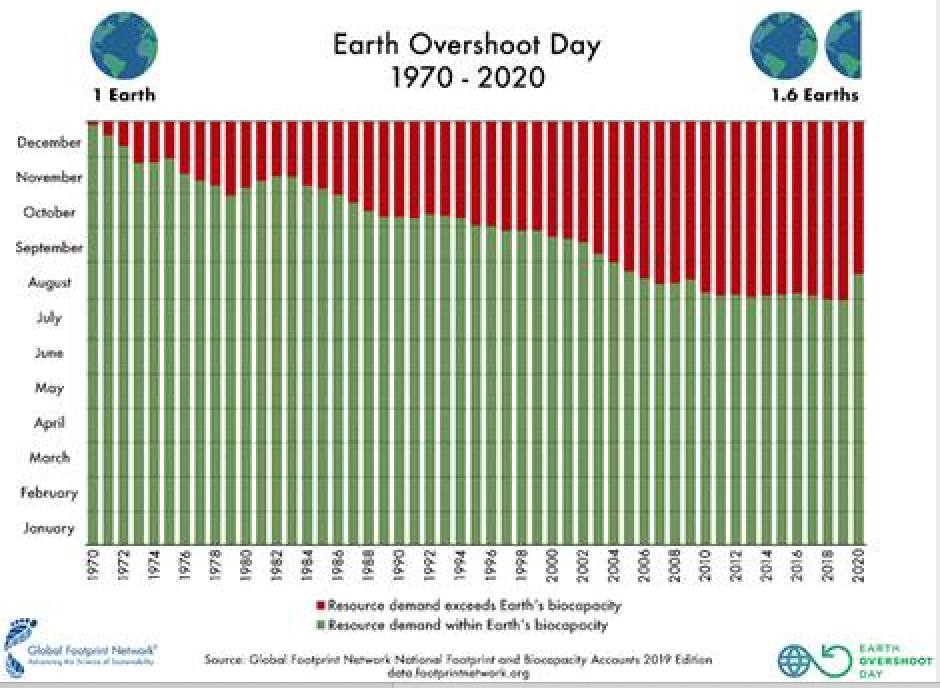For those unfamiliar, Earth Overshoot Day is the annual milestone on which the planet has out-consumed its ecological capacity for the year. Last year’s Earth Overshoot Day occurred on July 29, the earliest date ever. This year it landed a full three weeks later on August 22. A good result for Mother Earth. At the current pace, humans are using natural resources 1.6 times faster than ecosystems can replenish them. Ever since the milestone was conceived in the 1970s, it has crept up the calendar year and reflects what the relentless demand for “stuff” places on the planet. If 2020 does have a silver lining, it was giving Earth a few weeks off from "us".
While not entirely cause for celebration, the overshoot data is an opportunity "to rebuild society with a greater focus on sustainability," observes Ben Constable Maxwell. The head of sustainable and impact investing at outlines what continuing progress requires of investors and consumers to keep drawing down this deficit and turn a corner. His note is a timely one in thinking about care of the planet and where we are in our own adjustments. We welcome external guest features, where the usual editorial disclaimers apply. Send feedback to tom.burroughes@wealthbriefing.com and jackie.bennion@clearviewpublishing.com. Further resources on individual country footprints and how they are scored can be found here.
The effective shutdown of the global economy, induced by the coronavirus pandemic, reduced humanity’s ecological footprint by 9.3 per cent, according to estimates from the Global Footprint Network, which calculates the day every year.
It is increasingly commonplace to talk about the ‘carbon budget’ we need to adhere to if we are to keep global temperature rises to well below the 2° Celsius level at which ‘catastrophic and irreversible’ (according to the United Nations) climate change becomes inevitable. The estimated limit is 450 ppm (parts per million) of carbon dioxide equivalent in the atmosphere, and we are currently at the record level of 417 ppm – and rising.
Earth Overshoot Day is important because it represents the broader ‘resource budget’ that we have left to spend, covering all the natural resources that we use up every year. This includes diminishing reserves of oil and gas, minerals like copper and iron ore, and productive land on which we can grow crops.

It also captures the atmosphere’s capacity to absorb greenhouse gas emissions; the ocean’s capacity to avoid dangerous acidification as it warms; and the capacity of tropical rainforests – the lungs of the earth – to cope with logging and exploitation of natural resources. And the list goes on.
Plastic pollution is one of the many symptoms of our overuse of natural resources. A recent study sponsored by the Pew Charitable Trusts and Systemiq https://upload.wikimedia.org/wikipedia/commons/1/12/Doughnut_%28economic_model%29.jpg
